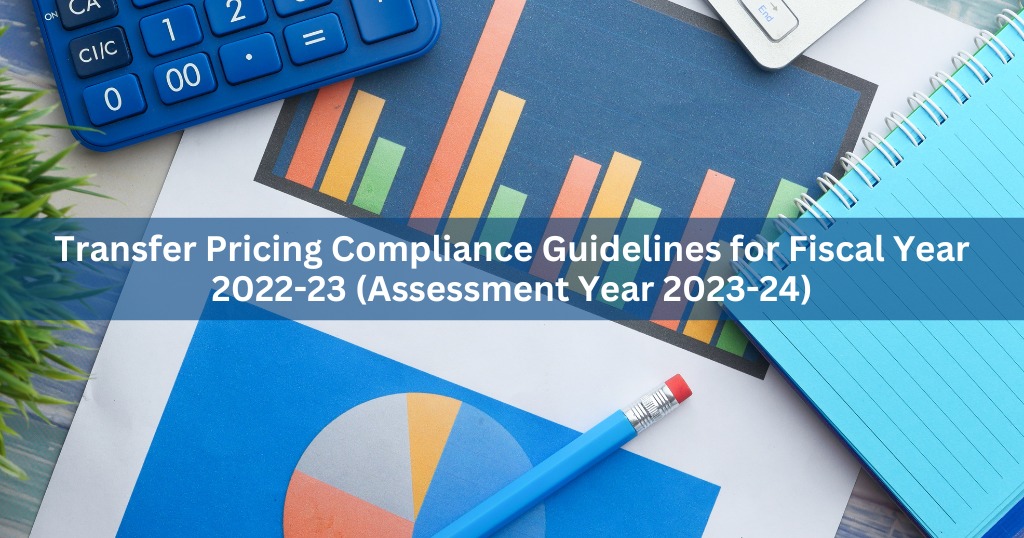
Transfer Pricing Compliance Guidelines for Fiscal Year 2022-23 (Assessment Year 2023-24)
Transfer pricing involves establishing prices for transactions between entities within the same multinational conglomerate. The Income Tax Act of India, dating back to 1961, incorporates regulations concerning transfer pricing to ensure equitable and transparent pricing. Businesses operating in India are obligated to adhere to these rules, necessitating the completion of specific activities within specified deadlines in accordance with the regulations.
Transfer Pricing

Why Transfer Pricing Compliance is important in India?
Adhering to transfer pricing regulations in India is of paramount significance for multinational enterprises conducting business in the nation. Such compliance aids in the avoidance of penalties, tax-related disputes, and potential damage to their reputation while simultaneously cultivating a positive rapport with tax authorities. Through strict adherence to the stipulated regulations and the meticulous upkeep of precise documentation, businesses can showcase their dedication to transparent and equitable pricing practices.
Transfer Pricing Compliance Roadmap for the Financial Year 2022-23 (Assessment Year 2023-24)
-
- Detailed instructions on the necessary actions to be carried out.
- Pertinent legal sections for reference.
- Essential form numbers for documentation.
- Specified deadlines that entities are required to meet to ensure compliance.
Activity | Section | Form No. | Deadline |
Transfer Pricing Audit | 92E | 3CEB | 31-Oct-2023 |
Transfer Pricing Documentation | 92D | – | 31-Oct-2023 |
Return of Income (with Transfer Pricing Provisions) | 139 | – | 30-Nov-2023 |
Master File | 92D (4) | 3CEAA | 30-Nov-2023 |
Intimation by Designated Constituent Entity (DCE) | 92D (4) | 3CEAB | 31-Oct-2023 |
Intimation by DCE | 286 (1) | 3CEAC | Two months before the due date for furnishing of CbCR-Form |
Country-by-Country Reporting (CbCR) | 286 (2) | 3CEAD | One year from the end of reporting Accounting year (i.e., 30-Dec-2023) |
Audit Report (with Transfer Pricing Provisions) | 44AB | – | 31-Oct-2023 |
Safe Harbour Application for International Transactions | 92CB | 3CEFA | 30-Nov-2023 |
Safe Harbour Application for Specified Domestic Transactions | 92CB | 3CEFB | 30-Nov-2023 |
Companies can evade penalties and showcase their dedication to ethical business conduct by adhering to the specified deadlines.

Key Activities and Deadlines
Transfer Pricing Audit:
Transfer Pricing Documents:
Income Tax Return (with Transfer Pricing):
Master File:
Intimation by Designated Constituent Entity (DCE):
Intimation by DCE:
Country-by-Country Report(CbCR):
Note:
- The previous year for companies with parent entities in India.
- The annual accounting period for companies whose parent entities follow accounting standards or laws of their resident country.
- Reporting Accounting Year is the accounting year for which financial and operational results must be included in the report under sub-section (2) and (4).




